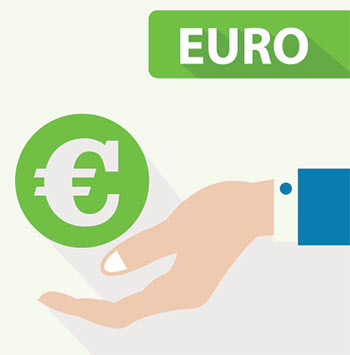
This week has been less than ideal for the Euro having only seen gains against Sterling, which had fallen against all of its major peers.
The single currencies bearish nature began on Tuesday with a decline in German economic sentiment. Problems were further exacerbated on Wednesday when Eurozone industrial production reported a flat line figure despite a forecast of 0.2%.
The general declination for the Euro this week was accelerated with the release of a lot of unfavourable domestic data on Thursday. French Gross Domestic Product (GDP) contracted from 0.8% to 0.1%. Eurozone GDP declined to 0.7% from 0.9% falling considerably in the second quarter.
Thursday’s most important piece of bad European news, in terms of economic weighting, was the year-on-year German Gross Domestic Product data result. Having been forecast to drop from 0.7% to 1.3%; the actual result was revealed to have plummeted to 0.8%. Moreover the quarter-on-quarter German GDP felt a dramatic declination having dropped from 0.7% to -0.2%. . The data set is especially concerning in that it reveals that the German economy began to decline even before the sanction battle between Russia and the European Union had fully developed.
The damaging GDP reports increased speculation that European policy makers will boost stimulus in order to revive growth.
Forecast for the Euro exchange rate
The coming week will see very little by way of European domestic data of significant economic weighting.
Thursday will be pivotal with the domestic data releases pertaining to manufacturing, services and composite PMI’s. The German Services PMI will be one to watch as the services sector accounts for around 70% of German GDP. A positive result will go some way towards repairing the damage of yesterday’s German GDP retraction.
Given the lack of European domestic data of substantial economic weighting; Euro movement is likely to be dictated by geopolitical issues. Junichi Ishikawa, an analyst at IG Markets in Tokyo, confirmed this stating; ‘The GDP reports confirm that the fundamentals in Europe aren’t strong enough to absorb some external shocks, such as a flare up in geopolitical risks.’
Those invested in the Euro will be hoping that geopolitical issues will abate in the coming week. The situation between Russia and Ukraine is already beginning to ease as Imre Speizer, a markets strategist at Westpac Banking Corp. in Auckland, explains; ‘Ukraine’s impact is decreasing over time in the absence of fresh news, and unless you get fresh adverse news, I wouldn’t expect it to weigh on risk appetite further’.
Further risk to the Euro will come from mounting trader speculation of the European Central Bank (ECB) having to increase stimulus. ECB president Mario Draghi has already unveiled a stimulus package and has confessed he is willing to do more if the bank’s outlook on inflation changes. Should a quantitative easing rhetoric gather momentum with ECB policy makers it will likely result in traders pulling away from the Euro in order to avoid risk.

Comments are closed.